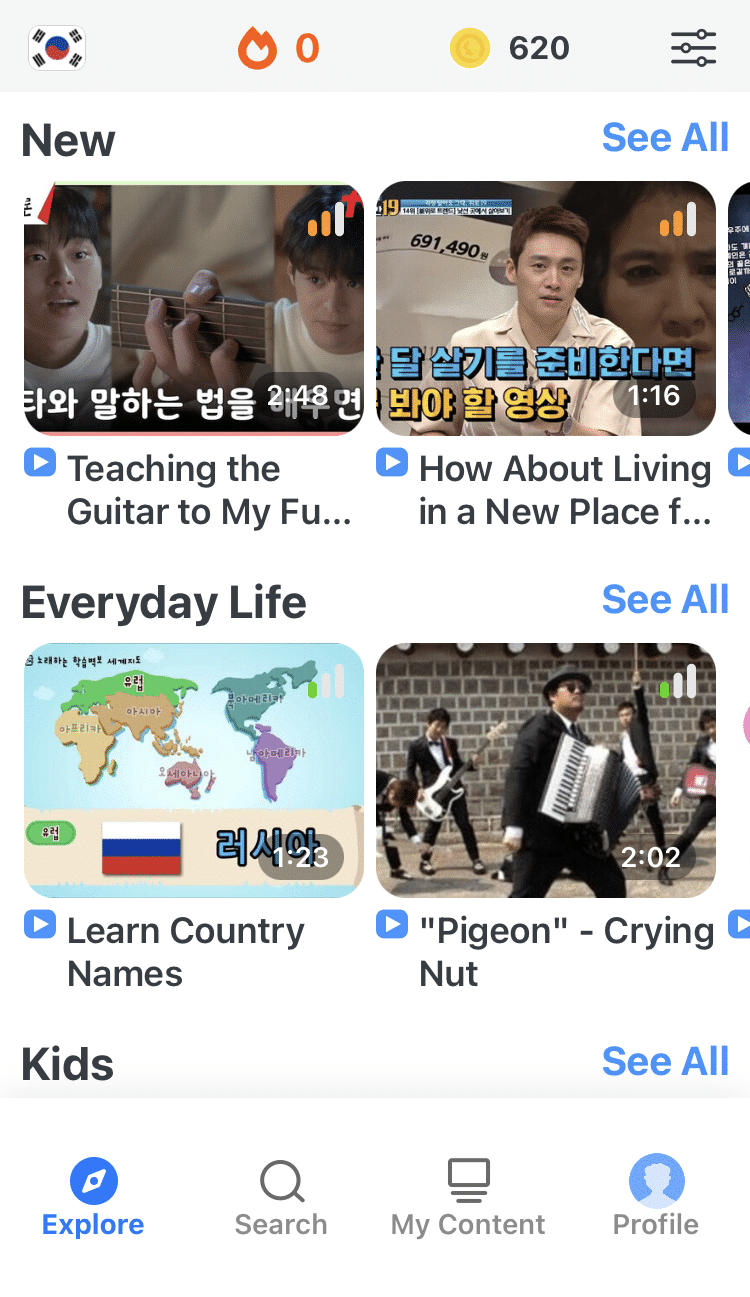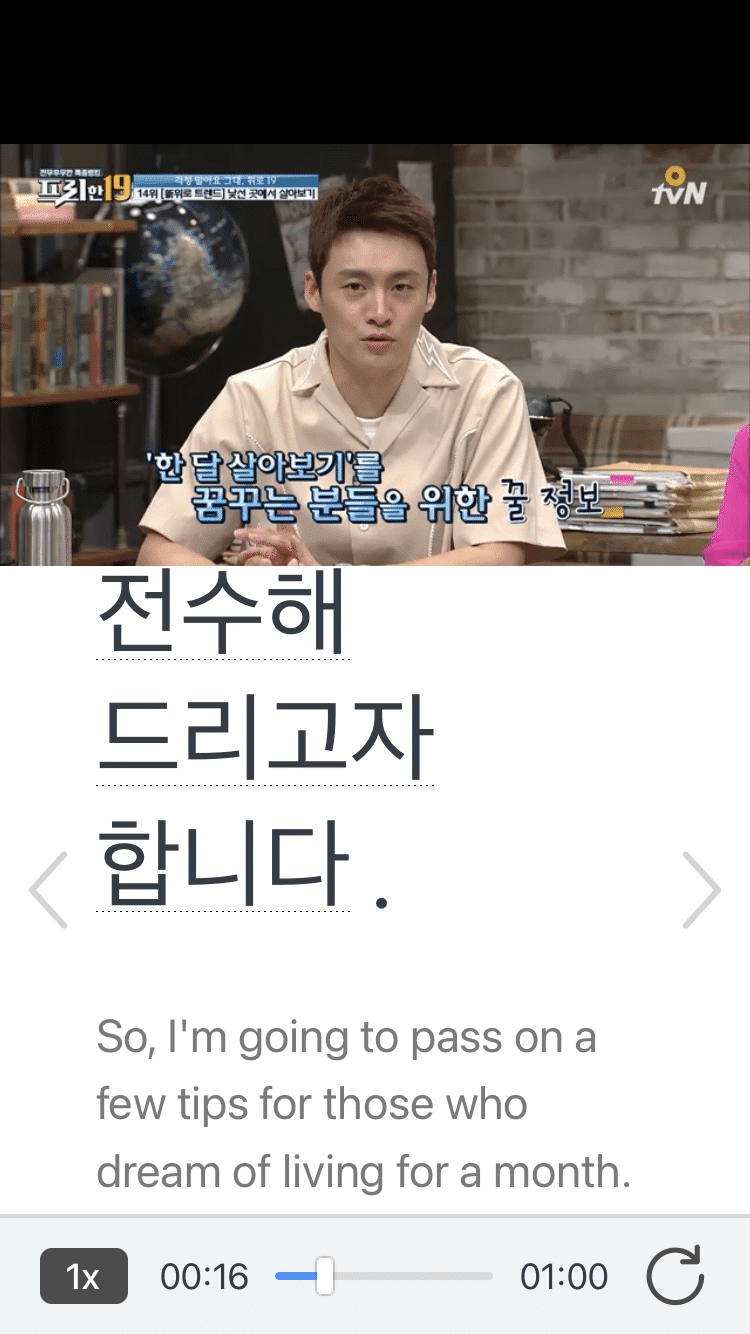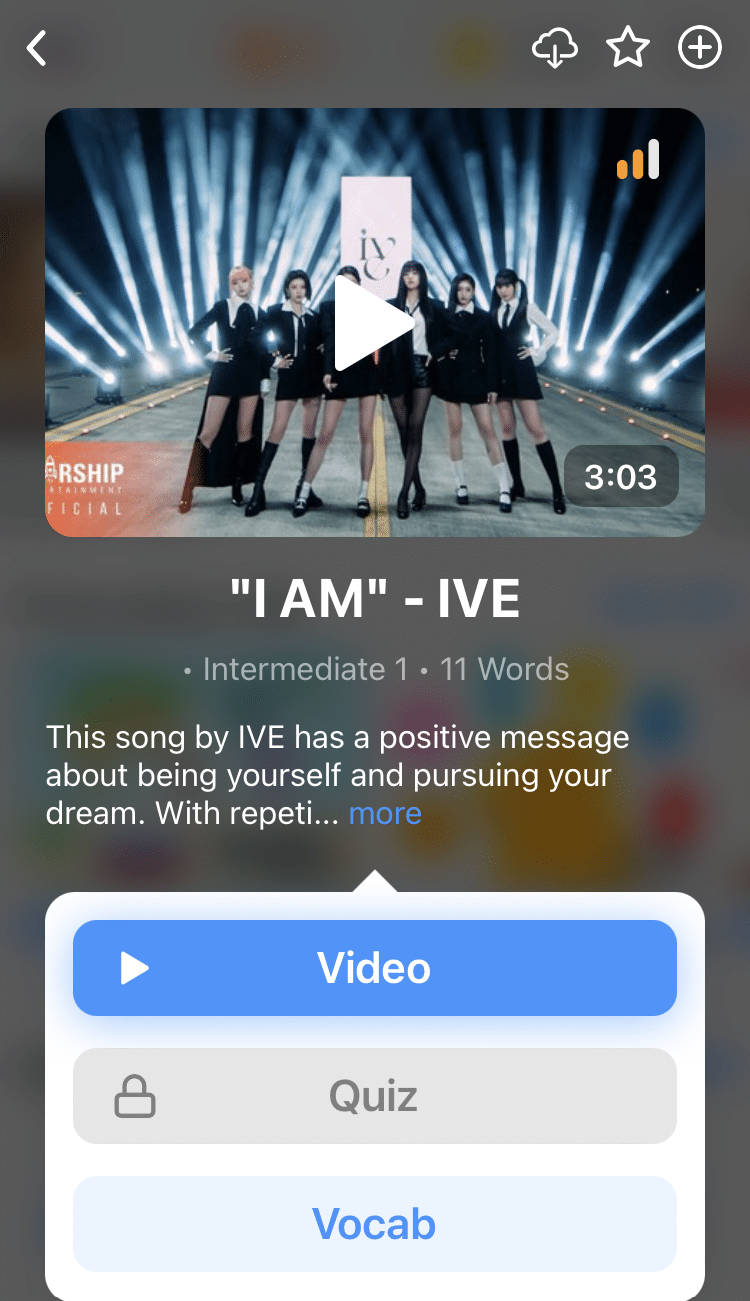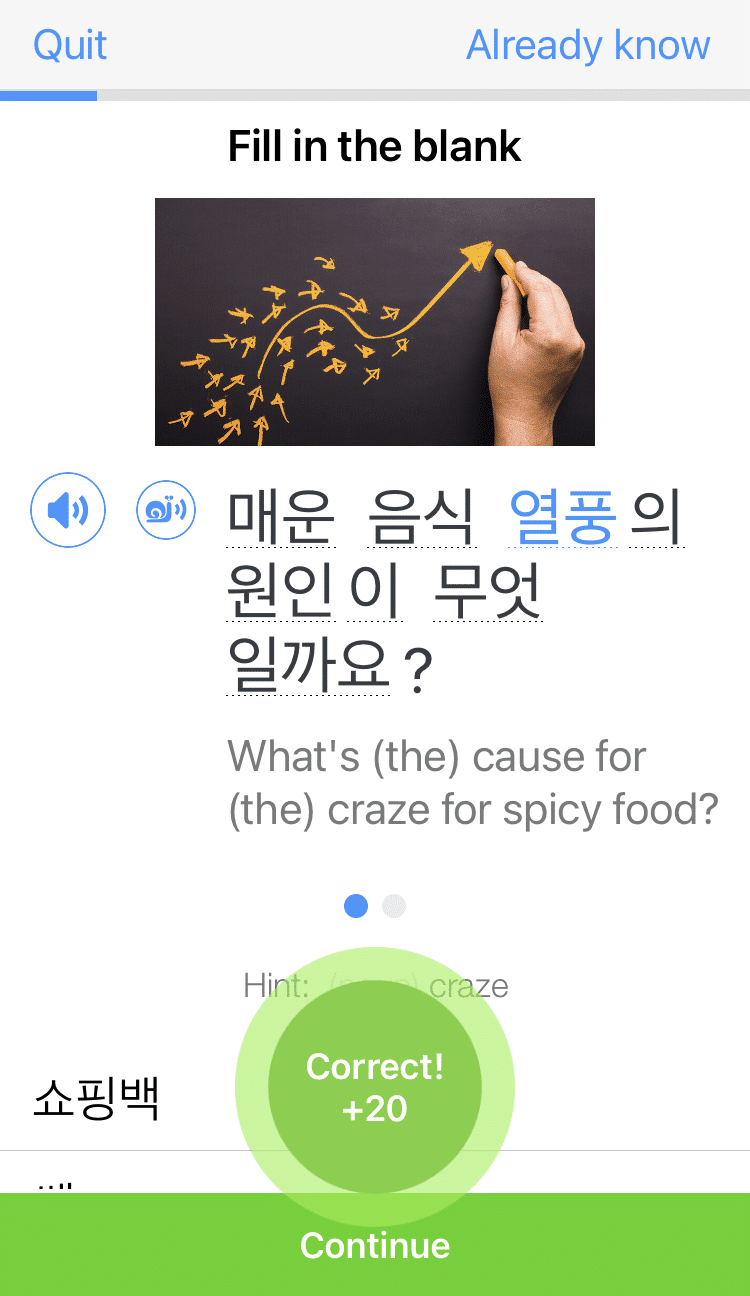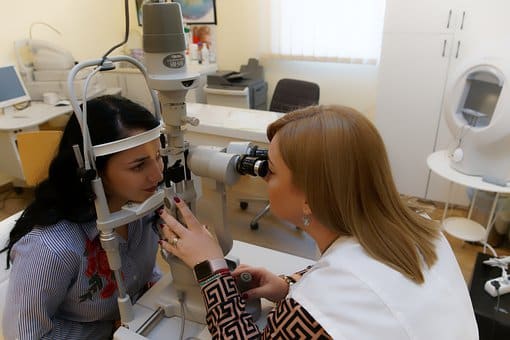
100+ Handy Korean Medical Words and Phrases
Whenever I learn a new language, I make it a point to immediately study medical terminology—words that have to do with medicine, diseases and hospitals. I recommend that you do the same early on in your Korean studies, because you never know when a situation might strike.
Since we’ll often be talking about the body here, you might want to review the different parts of the body in Korean. After that, check out these critical medical Korean terms that can help you out in a pinch.
Contents
- Basic Medical Information in Korean
- Conditions and Symptoms in Korean
- Medicine and Treatments in Korean
- Medical Specialists in Korean
- Medical Settings in Korean
- Useful Korean Phrases for Emergencies
- Korean Medical Dramas to Practice Vocabulary
- Helpful Resources to Study Korean Medical Terms
- And One More Thing...
Download: This blog post is available as a convenient and portable PDF that you can take anywhere. Click here to get a copy. (Download)
Basic Medical Information in Korean
Before anything else, when you first enter a medical facility, there are a few basic things that the doctors and nurses will want to learn about you ASAP.
나이 (na-i) — Age
혈압 (hyeol-ap) — Blood pressure
혈액형 (hyeol-aek-hyeong) — Blood type
체온 (che-on) — Body temperature
진찰 (jin-chal) — Examination
키 (ki) — Height
검진 (gum-jin) — Medical examination
병력 (byeong-ryeok) — Medical history
분위기 (bun-wi-gi) — Mood
환자 (hwan-ja) — Patient
맥박 (maeg-bag) — Pulse
증상 (jeung-sang) — Symptom
무게 (mu-gae) — Weight
Conditions and Symptoms in Korean
Properly describing and understanding what’s bothering you is key to getting the right treatment. These are some common ailments and symptoms that you definitely should learn.
알레르기 (al-le-reu-gi) — Allergy
빈혈증 (bin-hyeol-jeung) — Anemia
천식 (cheon-sik) — Asthma
흐릿한 시야 (heu-lit-han si-ya) — Blurry vision
멍 (mung) — Bruise
암 (am) — Cancer
감기 (gam-gi) — Cold
뇌진탕 (noe-jin-tang) — Concussion
변비 (byeon-bi) — Constipation
기침 (gi-chim) — Cough
탈수 (tal-su) — Dehydration
당뇨병 (dang-nyo-byeong) — Diabetes
설사 (seol-sa) — Diarrhea
질환 (jil-hwan) — Disease
어지러움 (eo-ji-leo-um) — Dizzy
간질 (gan-jil) — Epilepsy
피로 (pi-ro) — Fatigue
열 (yeol) — Fever
독감 (dok-gam) — Flu
두통 (du-tong) — Headache
고혈압 (go-hyeol-ab) — High blood pressure
고열 (go-yeol) — High fever
전염 (jeon-yeom) — Infection
염증 (yum-jeung) — Inflammation
저혈압 (jeo-hyeol-ap) — Low blood pressure
코 막힘 (ko mak-him) — Nasal congestion
메스꺼움 (me-seu-kkeo-um) — Nauseous
아픔 (a-peum) — Pain
마비 (ma-bi) — Paralysis / stroke
발진 (bal-jin) — Rash
콧물 (kot-mul) — Runny nose
떨다 (tteol-da) — Shiver
부종 (bu-jong) — Swelling
따끔 (tta-kkeum) — Tingling
치통 (chi-tong) — Toothache
종양 (jong-yang) — Tumor
자상 (ja-sang) — Stab wound
복통 (bok-tong) — Stomachache
구토 (gu-to) — Vomiting
천명음 (cheon-myeong-eum) — Wheezing
상처 (sang-cheo) — Wound
Medicine and Treatments in Korean
I’ve gone to plenty of native Korean doctors and Korean pharmacies. In my experience, they can certainly relay basic treatment options to you in English, but it’s for your benefit that you also learn the Korean terms for them. It’s guaranteed that you’ll hear them being used, directed to you or not.
마취제 (ma-chwi-je) — Anesthetic
제산제 (je-san-je) — Antacid
항생제 (hang-saeng-je) — Antibiotic
항우울제 (hang-u-ul-je) — Antidepressant
항히스타민제 (hang-hi-seu-ta-min-je) — Antihistamine
아스피린 (a-seu-pi-rin) — Aspirin
붕대 (bung-dae) — Bandage
압박 붕대 (ap-bak bung-dae) — Compress
기침약 (gi-chim-yak) — Cough syrup
진단 (jin-dan) — Diagnosis
내시경 (nae-si-gyung) — Endoscopy
운동 (un-dong) — Exercise
거즈 (geo-jeu) — Gauze
정맥액 (jeong-maek-aeg) — IV / intravenous fluid
완하제 (wan-ha-je) — Laxative
약 (yak) — Medicine
연고 (yeon-go) — Ointment
수술 (su-sul) — Operation
진통제 (jin-tong-je) — Painkiller
처방전 (cheo-bang-jeon) — Prescription
주사 (ju-sa) — Shot
잠 (jam) — Sleep
스테로이드 (seu-te-ro-i-deu) — Steroid
좌약 (jwa-yak) — Suppository
외과 (oe-gwa) — Surgery
요법 (yo-beop) — Therapy
초음파 (cho-eum-pa) — Ultrasound
백신 (baek-sin) — Vaccine
비타민 (bi-ta-min) — Vitamin
엑스레이 (eg-seu-le-i) — X-ray
Medical Specialists in Korean
The Korean word for “doctor” is 의사 (ui-sa).
You can refer to a doctor with a specialty in this format: field/part of the body + 의사.
For example, a dermatologist is known as 피부과 의사 (pi-bu-gwa ui-sa) because the dermatologist treats skin problems, and skin in Korean is 피부 (pi-bu). Literally, dermatologists are called “skin doctors.”
As a sign of respect, we add 선생님 (seon-saeng-nim) to 의사 (ui-sa). It’s a polite titular used for doctors and teachers.
Note that if the doctor you’re referring to isn’t an M.D. but a Ph.D., the term you use is 박사 (bak-sa).
심장병 전문의 (sim-jang-byeong jeon-mun-ui) — Cardiologist
치과 의사 (chi-gwa ui-sa) — Dentist
피부과 의사 (pi-bu-gwa ui-sa) — Dermatologist
이비인후과 의사 (i-bi-in-hu-gwa ui-sa) — Ear, nose and throat doctor
안과 의사 (an-gwa ui-sa) — Eye doctor
위장병 전문의 (wi-jang-byeong jeon-mun-ui) — Gastroenterologist
산부인과 의사 (san-bu-in-gwa ui-sa) — Obstetrician and gynecologist (OBGYN)
신경과 전문의 (shin-kyeong-gwa jeon-mun-ui) — Neurologist
간호사 (gan-ho-sa) — Nurse
종양학자 (jong-yang-hak-ja) — Oncologist
정형 외과 의사 (jeong-hyeong oe-gwa ui-sa) — Orthopedist
소아과 의사 (so-a-gwa ui-sa) — Pediatrician
약사 (yak-sa) — Pharmacist
내과 의사 (nae-gwa ui-sa) — Physician
성형외과 (seung-hyeong-oe-gwa) — Plastic surgeon
발병 전문의 (bal-byeong jeon-mun-ui) — Podiatrist
정신과 의사 (jeong-shin-gwa ui-sa) — Psychiatrist
류마티스 전문의 (ryu-ma-ti-seu jeon-mun-ui) — Rheumatologist
외과 의사 (oe-gwa ui-sa) — Surgeon
치료사 (chi-ryo-sa) — Therapist
비뇨기과 의사 (bi-nyo-gi-gwa ui-sa) — Urologist
Medical Settings in Korean
Of course, it’s likely that you’ll be placed and shuffled along to somewhere specific during your medical-related visit. Here are the most common places:
산후조리원 (san-hu-jo-ri-won) — Birthcare center
혈액 은행 (hyeol-aeg eun-haeng) — Blood bank
진료소 (jin-ryo-so) — Clinic / consultation room
퇴원 (toe-won) — Discharge (from hospital)
응급실 (eung-geup-sil) — Emergency room
병원 (byeong-won) — Hospital
중환자실 (joong-hwan-ja-sil) — Intensive care unit
수술실 (su-sul-sil) — Operation theater
정신재활 병원 (jeong-shin-jae-hwal byeong-won) — Mental health center
보육실 (bo-yook-sil) — Nursery
요양원 (yo-yang-won) — Nursing home
환자실 (hwan-ja-sil) — Patient room
약국 (yak-gook) — Pharmacy
회복실 (hoe-bog-sil) — Recovery room
재활 센터 (jae-hwal sen-te0) — Rehab center
긴급 치료 센터 (gin-gip chi-ryo sen-teo) — Urgent care center
대기실 (dae-gi-sil) — Waiting room
Useful Korean Phrases for Emergencies
In the case that you find yourself in an emergency in a Korean-dominant setting, you should have these phrases canned and ready to go. Native speakers can assist you better when you tell them what you need.
Here are some phrases that are literally lifesavers.
구급차 (gu-geup-cha) — Ambulance
아파요 . (A-pa-yo.) — I’m sick.
도와주세요 . (Do-wa-ju-se-yo.) — Please help me.
제일 가까운 병원으로 가주세요 . (Je-il ga-gga-oon byung-won-eu-ro ga-ju-se-yo.) — Please take me to the nearest hospital.
저는 의사가 필요해요 . (Jeo-neun ui-sa-ga pi-ryo-hae-yo.) — I need a doctor.
여기가아파요 . (Yuh-gi-ga ah-pa-yo.) — It hurts here.
When you want to tell the doctor about your condition, you can use the following format:
_____ 이 있어요 . (_____-ee i-ssuh-yo.) — I have _____.
Simply plug in the things that ail you: 설사 (diarrhea), 알레르기 (allergy), 천식 (asthma), etc.
For example:
천식이 있어요 . (Cheon-shik-ee i-ssuh-yo.) — I have asthma.
Korean Medical Dramas to Practice Vocabulary
In my opinion, one of the best ways to learn about Korean medical terms is to watch dramas involving doctors and nurses, and hospital life in general.
Their entertainment factor can make it even easier for you to memorize all the vocabulary with little issue. As the wisdom goes, a spoonful of sugar helps make the medicine go down.
If you just want to check out quick clips involving the relevant words you want to study, then consider using FluentU.
FluentU takes authentic videos—like music videos, movie trailers, news and inspiring talks—and turns them into personalized language learning lessons. You can try FluentU for free for 2 weeks. Check out the website or download the iOS app or Android app. P.S. Click here to take advantage of our current sale! (Expires at the end of this month.)
If you’re ready to binge a whole show, however, here are five of the many Korean dramas that I highly recommend you check out!
“Hospital Playlist”
How ‘bout doctors who share a deep fondness for music? “Hospital Playlist” is a drama about five friends from med school who, after 20 years, find themselves working in the same hospital. The show follows the goings-on in the Yulje Medical Center where our five physicians spend their professional lives. The setting provides you with all the practical medical jargon you could need, as well as makes you fall for the lovable lead characters and their highly relatable patients.
“Good Doctor”
Joo Won brilliantly plays Park Shion—an autistic savant—who navigates hospital life amidst the jealousy of his colleagues and the doubts of his patients. Shion is a pediatric surgery resident at Sungwon University Hospital trying to prove his skills, sanity and stability for the job. Will a genius doctor, but with the mind of a 10-year old, be able to thrive in a highly competitive field, and at the same time have a burgeoning love life?
Joo Won’s portrayal was so nuanced, it won him the Actor of the Year prize at the 2013 KBS Drama Awards.
“Hospital Ship”
This drama’s setting is a small ship that moves around remote islands in Korea, rendering medical services to people typically out of reach by regular hospitals.
The floating clinic is staffed by doctors, each with a personal backstory and struggles of their own. Eunjae is a very talented surgeon in charge of leading a big hospital in Seoul, Kwakhyun is a doctor with a good heart (but with a few emotional scars) and Jaegeol is trying to escape his father’s shadow.
You’ll not only learn how medical terms are used in context, but you’ll also be more attuned to the foibles of the human condition. This one is an engaging watch.
“Doctor Stranger”
Park Hoon accompanies his father to North Korea to perform surgery on its leader, Kim Ilsung. What was supposed to be a simple mission turns into years in the North. Park Hoon blossoms into a doctor as good as his father and meets the love of his life there.
After the death of his father, Park Hoon is able to flee North Korea and begin anew working in a top hospital in Seoul. His soulmate, Jaehee, is left behind, but he is determined to reunite with her.
As things would have it, there’s another doctor in his hospital who looks exactly like Jaehee. Is it really her? If so, then why is she treating him like a complete stranger?
Out of all the shows in this list, I have to say this one pretty puts the capital D in Drama. But hey, you’ll be learning plenty of useful doctor lingo!
“Dr. Romantic”
An incredibly talented surgeon suddenly vanishes from his workplace. Using a new alias, although informally known as “Dr. Romantic,” he now lends his talents to a humble hospital away from the mainstream. However, his priorities aren’t purely technical and “by-the-book” in nature. To him, sympathy and thoughtfulness are also key to proper medical treatment.
If only we all had a Dr. Romantic present in our hospital experiences! Grab your Korean studies notebook and your thinking cap, because the medical intrigue in this series can get seriously potent.
Helpful Resources to Study Korean Medical Terms
If all of the above still doesn’t scratch that Korean learning itch, then check out these useful study resources as supplemental material.
Medline Plus
If you really want to up your vocabulary game (or if you’re aspiring to be an actual multilingual doctor), then look no further than Medline Plus’s detailed Korean-language health information appendix. It’s fully accurate, with articles showing side-by-side English to Korean translations.
TOPIK Guide
To study up on the bare essentials of proper medical communication, I highly recommend this short guide hosted on the TOPIK Guide website. It’s formatted for beginners and easy to read through. Besides words, it also lists common questions and answers expected between a doctor and patient.
Ling-app
Ling-app also offers a quick summary of essential Korean medicine words. It’s good to check out if you’re in a rush and only need to know the basics of prescription terminology. The guide also includes some instructions on how you can order medicine in a Korean pharmacy.
Don’t think that medical terms in Korean are just for emergencies and hospital visits.
They can also be useful when talking about good health and well-being, referring to the human body and even making small talk about how you feel on certain days.
Learning them will give you more ways to express yourself and will make your conversations more interesting.
To your health!
Download: This blog post is available as a convenient and portable PDF that you can take anywhere. Click here to get a copy. (Download)
If you enjoyed this post, you're already halfway to having the time of your life learning Korean with FluentU!
FluentU makes it possible to learn with K-pop videos, funny commercials, entertaining web series and more. Just a quick look will give you an idea of the variety of FluentU videos on offer:
FluentU really takes the grunt work out of learning languages, leaving you with nothing but engaging, effective and efficient learning. It's already hand-picked the best videos for you (which are organized by level and topic), so all you have to do is simply choose any video that strikes your fancy to get started.
Each word in the interactive captions comes with a definition, audio, image, example sentences and more.
Access a complete interactive transcript of every video under the Dialogue tab, and easily review words and phrases from the video under Vocab.
You can use FluentU’s unique Quiz Mode to learn the vocabulary and phrases from the video through fun questions.
FluentU keeps track of what you're learning, and tells you exactly when it's time for review, giving you a 100% personalized experience.
Review sessions use video context to help embed the words in your memory.
Start using the FluentU website on your computer or tablet or, better yet, download the FluentU app from the iTunes or Google Play store. Click here to take advantage of our current sale! (Expires at the end of this month.)
And One More Thing...
